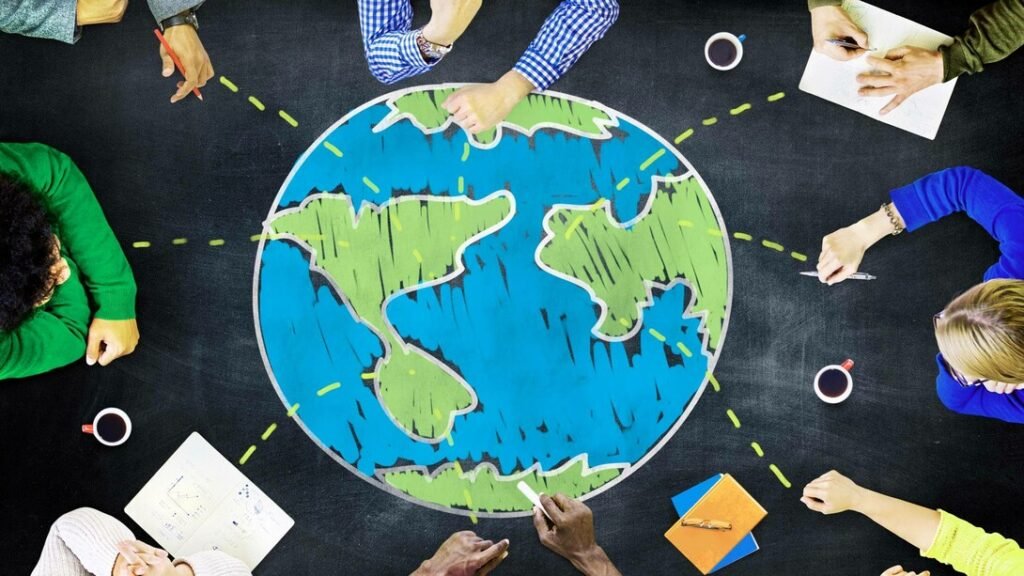Globalization has significantly altered the way societies interact, connect, and evolve. While it has led to numerous opportunities for cultural exchange and economic growth, it has also presented challenges to local cultures and traditions. This blog post explores the multifaceted impact of globalization on local cultures, highlighting both the positive and negative effects and providing insight into how communities navigate these changes.
1. Understanding Globalization
What is Globalization?
- Globalization refers to the process of increased interconnectedness and interdependence among countries, driven by advancements in technology, trade, and communication. It involves the exchange of goods, ideas, and cultural practices on a global scale.
Key Drivers of Globalization
- Technological Advancements: Innovations in technology have made it easier for people to connect and share information across borders.
- Economic Integration: Global trade agreements and international business practices have created a more interconnected global economy.
- Cultural Exchange: Media, entertainment, and travel have facilitated the spread of cultural practices and ideas worldwide.
2. Positive Impacts of Globalization on Local Cultures
Cultural Exchange and Enrichment

- Pro: Globalization has led to greater cultural exchange, allowing people to experience and appreciate diverse traditions, art forms, and cuisines. This cultural enrichment fosters mutual understanding and appreciation.
Increased Access to Knowledge and Resources
- Pro: Local communities have access to a wider range of educational resources, technology, and innovative ideas due to globalization. This can enhance local development and improve quality of life.
Economic Opportunities and Growth
- Pro: Globalization often brings economic opportunities, such as tourism and international trade, which can boost local economies and create new job prospects.
3. Challenges Posed by Globalization to Local Cultures
Erosion of Traditional Practices
- Con: The influence of global media and consumer culture can overshadow traditional practices and customs. Local traditions may be diluted or lost as global norms become more dominant.
Homogenization of Cultures
- Con: Globalization can lead to cultural homogenization, where distinct cultural identities are replaced by a more uniform global culture. This can result in the loss of unique cultural heritage and diversity.
Economic Disparities and Inequality
- Con: While globalization can create economic opportunities, it can also exacerbate inequalities. Local businesses may struggle to compete with global corporations, leading to economic disparities and the marginalization of traditional industries.
4. Navigating the Impact of Globalization
Preserving Cultural Heritage
- Pro Tip: Local communities can actively preserve their cultural heritage by promoting traditional practices, supporting local artisans, and documenting cultural histories. Cultural festivals and educational programs can also play a role in maintaining traditions.
Balancing Global and Local Influences
- Pro Tip: Communities can strike a balance between embracing global trends and preserving local identities. Encouraging cultural dialogue and integrating global innovations in ways that complement local traditions can help achieve this balance.
Supporting Local Economies
- Pro Tip: Supporting local businesses and promoting sustainable practices can help mitigate the negative effects of globalization. Investing in local products and services can contribute to the preservation of cultural and economic diversity.
5. Case Studies: Globalization and Local Cultures
Case Study: The Impact of Globalization on Japanese Cuisine
- Insight: Globalization has introduced Japanese cuisine to a global audience, leading to its widespread popularity. However, this has also resulted in the adaptation and commercialization of traditional dishes, sometimes at the expense of authenticity.
Case Study: Indigenous Cultures and Globalization
- Insight: Indigenous cultures around the world face unique challenges from globalization, including the threat to traditional knowledge and practices. Efforts to document and revitalize indigenous cultures are crucial in preserving their heritage.
6. Looking Ahead: The Future of Globalization and Local Cultures
Opportunities for Cultural Innovation
- Pro Tip: Globalization presents opportunities for cultural innovation and collaboration. Local cultures can adapt and evolve by integrating global influences while maintaining their unique identities.
Promoting Cultural Awareness
- Pro Tip: Increasing cultural awareness and education can help bridge gaps between global and local perspectives. Encouraging cross-cultural dialogue and understanding can foster a more inclusive global community.
Conclusion: Embracing Globalization While Preserving Local Cultures
Globalization presents both challenges and opportunities for local cultures. While it can lead to cultural exchange and economic growth, it also poses risks to traditional practices and identities. By actively preserving cultural heritage, balancing global and local influences, and supporting local economies, communities can navigate the impact of globalization and ensure that their unique cultures continue to thrive.



